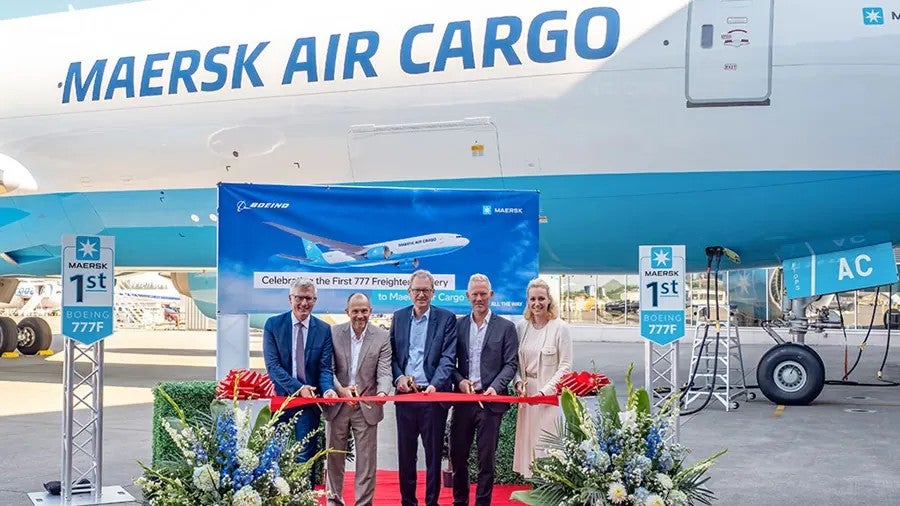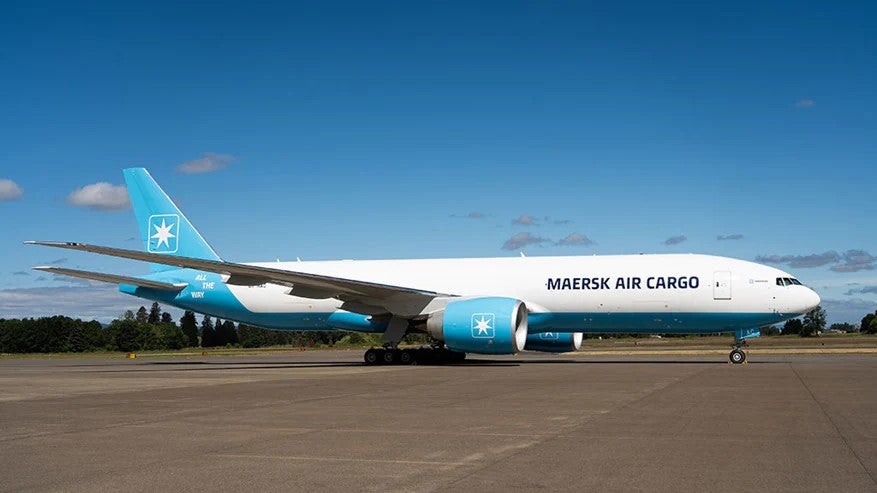Maersk Air Cargo, the flying arm of the Danish shipping giant AP Moller-Maersk, has received its new aircraft from troubled aviation behemoth Boeing.
The airline’s fleet was bolstered by the first of two new Boeing 777F aircraft, with the second scheduled to arrive in Denmark in Q3.
The liveried jet was handed over to Maersk at Boeing’s Seattle headquarters before it was flown to the Billund home of the Danish firm on Saturday.
The new additions will work alongside 20 Boeing 767F in Maersk Air Cargo’s owned fleet, along with the many jets the freighter line manages or operates on behalf of other carriers.
“We are delighted to take this important delivery and upgrade our fleet with two of the largest and most reliable freighters available on the market. With this step, we are entering the premier league of cargo aviation,” declared Maersk Air Cargo’s chief, Lars Jordahn.
Jordahn hailed the additional capacity the pair of new aircraft will offer Maersk customers.
“The B777F can transport more than double of payload on each flight compared to our 767Fs, and it is the most fuel-efficient aircraft in the world with the GE90 engines,” he said.

The Boeing 777F can fly up to 9,200 kilometres (4,970 nautical miles) and carry a maximum payload of 102,000kg, according to the manufacturer.
Maersk said the configuration would allow the main deck to fit pallets up to 3 metres tall, and all parts of the cargo holds can be temperature controlled.
The new aircraft will be primarily used on Maersk’s existing China-Europe routes. It will fly the route three times each week to begin with, before a potential lift to six weekly journeys.
Maersk’s chief product officer for logistics and services Narin Phol explained the 2021 decision to purchase the jets was based on “disruption” to the global logistics environment and supply chain problems stemming from the pandemic.
“From a commercial perspective, the two Boeing 777Fs are a giant leap in terms of what we can offer our air freight customers going forward. Besides enabling a much more efficient route structuring our 777Fs will improve the availability of space for our customers as we see a growing demand for integrated supply chain solutions which include air.
“Due to the disruptive environment in logistics, a rising number of cargo owners are choosing to reduce the number of service providers in their supply chain,” Phol said.
“Availability of air freight capacity and full asset control are important aspects here. Both increase the levels of resilience, visibility and flexibility which are essential in these disruptive times,” Phol added.









